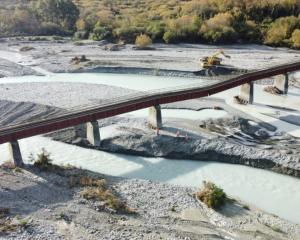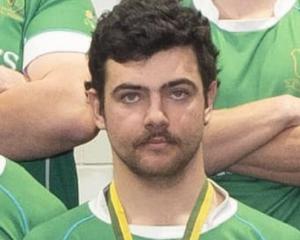An Auckland man drowned after trying to save his young grandchildren from a rip at an "unforgiving" stretch of Ninety Mile Beach despite a rescuer's desperate attempt to bring him ashore.
The tragedy has prompted a coroner to caution even experienced swimmers from underestimating the conditions on New Zealand's notorious west coast beaches.
Otahuhu man Jack Maynard Wiki, 54, originally from the Far North, had been collecting kina with his brother-in-law at the bluff rock on Ninety Mile Beach's northern end on December 29, 2009.
The men were keeping a close eye on Mr Wiki's grandson Jeziu Pyroux, 6, and granddaughter Jezaya Pyroux, 7, who were playing in shallow water 50m away, on the southern side of the bluff.
When Mr Wiki noticed the children in trouble in deeper water, he immediately jumped off the bluff and swam towards them.
A holidaymaker who was fishing at the beach with his four-year-old daughter also noticed the children struggling and swam out, reaching them first.
He grabbed the boy by the hand while the girl held on to his neck, but the big waves were too powerful and the boy was ripped from his grasp and swept further out to sea.
Two men playing cricket on the beach also rushed into the water to help.
By the time they arrived, Mr Wiki was struggling to keep himself afloat as well as help his grandchildren.
One of the cricketers swam ashore with the young boy, leaving the other man to help Mr Wiki.
That man, Matthew Sheterline, told the coroner's inquest he took hold of Mr Wiki and started to swim back towards the shore.
"The surf was quite big and was going over the top of us, and at that point I realised that we were actually getting swept out to sea further and further."
By then, Mr Wiki had swallowed a lot of water and was desperately trying to stay afloat by climbing onto Mr Sheterline.
"After a couple of minutes he appeared to have lost all of his energy and started going under," Mr Sheterline said.
"I grabbed hold of his t-shirt and then started to yell out to some people on the rocks to give me a hand. They tried throwing a rope to us, but it was too short and we were about seven metres away from the rocks."
Mr Sheterline was also struggling to stay afloat and was no longer able to hold on to Mr Wiki, who had been under water for about a minute.
When a big wave came and separated the men, Mr Sheterline tried in vain to find Mr Wiki under the water but could not see him.
Exhausted and distressed, he struggled to swim back to the beach and instead headed for the rocks, where he suffered cuts to his legs as the other rescuers pulled him ashore.
Mr Wiki had been missing for up to half an hour by the time four men pulled in his cold and water-logged body from about 100m offshore. Efforts to revive him were unsuccessful.
Coroner Brandt Shortland said west coast beaches were notorious for their unforgiving conditions, with Ninety Mile Beach in particular known for its rips and ever-changing water holes.
He said Mr Wiki knew the area and took every precaution with his grandchildren.
However, the area by the bluff was known by local Maori to be unforgiving due to rips on either side, and people did not swim there.
At least 10 people had drowned at the bluff in the past four decades, according to one resident.
Coroner Shortland said the blameless tragedy was a reminder to never underestimate the conditions, and to recognise how quickly they could change.
"The children were playing in what may have been considered a safe situation, but it turned to tragedy so quickly and unexpectedly.
"Even for the competent and experienced swimmer, conditions, rips and large swells can be fatal at the end of the day."












